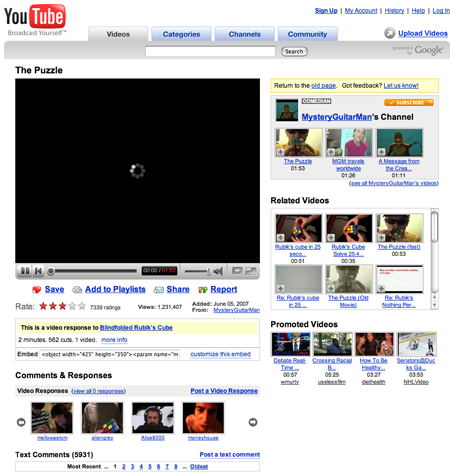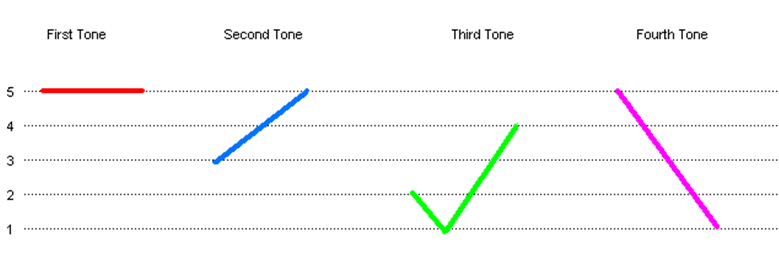Phở

I am Jenny and I am currently teaching Vietnamese at Sydney Languages Solutions. I will introduce to you one of my favorite Vietnamese foods – Phở
Phở is one of the most popular Vietnamese dishes. It origin was in the early 20th century in Nam Dinh, a province in southwest of Hanoi. Enjoying a bowl of hot Phở whenever hungry is kind of pleasure.
Phở’s recipe may vary amongst different regions, but commonly the main ingredients include white rice noodle, broth (made by stewing the cows or pigs bones with spices such as cinnamon sticks, coriander pods, cloves star anise and cardamom), and slices of meat (beef, chicken). Typical garnishes for Phở are onions, lime, chili peppers and bean sprouts.
Due to its popularity, Phở can be easily found in many countries such as Australia, America, French, Canada, China, Indonesia…If you have never tried Phở before, why don’t give it a go? I believe you will love it from the first sight!
Is Your Passion Fashion?

I recently read an article on where not to learn Japanese from which started me thinking about language and how it is an ever-changing creature.
The following resources may be useful to help with reading, writing and comprehension, but when it comes to speaking, these following points may be worth considering:
Don’t learn from novels as no-one talks that way.
Don’t learn from scientific journals as no-one talks that way.
Don’t learn from newspapers as no-one talks that way.
Don’t learn from road signs as no-one talks that way.
Don’t learn from advertisements as no-one talks that way.
Don’t learn from phone texting as no-one talks that way.
Don’t learn from manga (comics) as no-one talks that way.
As a native English speaker and mother of young teenagers, it is a constant battle for me to keep up with their ever-changing language. They constantly bring home words that I recognise but with meanings that are completely new to me.
It may be the answer for students of a new language – learn from the youth of today as the words they use now will be in the dictionaries tomorrow, and everyone will talk that way!
By Vicki
But What Will I Talk About?

When you start learning a new language, one of the best ways to improve is to talk to people who are native or fluent speakers.
A few months back we looked at moving out of your comfort zone to do exactly that; to start using what you have learnt in class and putting it to use, be it in a restaurant, a supermarket, at a friend’s party etc.
When you are just beginning, your vocabulary will be quite limited and for some students, this might prevent them from talking to others.
You may think, ‘what will I talk about when my language level is just at the beginner’s stage? What will I say?’
That is why visiting a specific location can work well: in a restaurant you can use simple greetings and order food; at the supermarket you can do the same, or ask for directions to locate some goods; and at a friend’s party you can use your new vocabulary to talk about the weather, your family or better still, ask simple questions that allow you to listen and learn.
By Vicki
Trust Your Instincts

The rules of English grammar are so difficult, with so many exceptions, that students can often feel overwhelmed by them.
Even as a native language speaker who has spent her entire life working with the written word, I sit with a dictionary by my side, along with numerous style guides and grammar books.
But most of the time I go by my gut instinct, meaning; I read a sentence or a passage of text and know when it just doesn’t feel right.
I am always amazed when I meet people who have English as their second or third language and realise that their understanding of English grammar rules are much better than mine. Perhaps the emphasis of their learning has been on this aspect. But unfortunately, that does not always equate to fluency in speech which is often what students aim to achieve.
Remember to find the balance and don’t get caught up in all the rules so that you don’t have time to go with your gut instinct. It should also be fun!
What Language Do you Dream In?

If you are a language student, chances are that you will have a lot of words whirling around in your head from your mother tongue and the new language that you are acquiring.
If you are already bilingual or trilingual, you may have the added confusion (or bonus) of multiple languages.
But what happens when you dream?
I was recently doing some background reading on this and it seems that there is no set pattern. Most people dream in their mother tongue and if they have multiple languages, can sometimes dream in them too.
One of the most interesting comments I read was from a language student who when asked when did he feel he finally had a grasp on the new language, replied “When I started to dream in it”.
This rang true for me as I clearly remember the time when I was living in Japan and started to dream in Japanese. I woke up with the feeling that I finally understood the language enough to feel comfortable.
The next time you have a dream that you remember you should make a note of which language it is in. Ask your friends and work colleagues too, as it can make for some interesting discussion.
English in Electronic Media, Social Media, and Pop Culture
English lessons in school are important, but there are other ways you can improve your English. English is a widespread language thanks to electronic media, social media and pop culture. These mediums can be a useful way to learn English, and they may benefit you in your IELTS test, every day interraction, job interview, university interview, citizenship interview, social life, and your time in the office. Throughout history people have learnt English outside the classroom.
Between 1619 and 1620, English settlers met Squanto, a Native American who spoke English. Squanto taught the settlers how to grow local crops, catch local fish and he acted as a translator between the other American Indians and the settlers. Squanto had been kidnapped by earlier explorers, and learnt English from his captors, friars, and a ship builder, before he returned home.
In Eastern Europe during the Cold War, there was a man wanted to learn English. To do this, he listened to American radio stations from Western Europe. He learnt English successfully because he heard the broadcasts regularly, and he had the hunger for the language. Motivation helps. The UN Secretary General, Ban Ki-moon, may have learnt some English, from American soldiers in his native Korea. An ESL teacher taught his students English, by old episodes of Star Trek, because the old Star Trek episodes have lots and lots of talking. In 2008 I met a Brazilian student who had learnt English from Spider Man 3, he had watched it 8 times and it was his favourite movie. In 2009 I met a Czech student who used Batman comics to learn English. In the same year, a teacher mentioned a student who had learnt English from World Of Warcraft. This year, I met a student who uses Sunrise to help with her English.

YouTube is another helpful way of learning English. It has videos made especially for students of English, and also has film clips from movies, and video games. These movie and video game clips, have English subtitles and can be a casual way of learning another language. When you watch YouTube, you have the benefit of being able to choose the clips you like, and that choice can be an encouragement, as you have the chance of finding a clip you like.
Wiktionary is another helpful English learning tool. Wiktionary contains words in countless languages. While not every single word is present, there is a very large number of words on the website. Just type the word in the search box, and chances are, it will appear, accompanied by an explanation.

The ABC TV show Media Watch, may also be helpful. This programe, provides critiques and analyses of Australian news, current affairs, advertising, magazines, newspapers, web sites and radio broadcasts. When a radio broadcast is played, the subtitles appear on the screen, and move in time to the words. This is good reading and listening practice. When a print publication is displayed, the words are highlighted and read aloud. This can be more reading and listening practice. TV programmes are played without subtitles, and this can be a challenge. The entire transcript of each episode, from 2001, is available on the internet and videoes of each episode from 2008 can be watched online. More good listening and reading practice. Older videos can be watched in the 20th Anniversary special. The website has been used by at least one student, and she found it to be an effective and productive study tool.
DVDs are guite good to use as well, becaus of the subtitles. But without the subtitles they are just as good, and can provide a challenge. ABC 702 is a station used by students to learn English, and they have found it useful. It’s a nice listening tool. The ABC news website is well written and professionally conveyed, the articles are good practice for reading, and the clips are good practice for listening. The articles are not transcripts for the clips. They are separate information sources, although they may appear on the same page. Subtexts for the hearing impaired, on TV, can be helpful, however they alot of them are out of sync with the voices on the screens, so they should not be your first choice.
Learning English doesn’t have to be limited to the classroom. It can be learnt from a wide range of sources. You may also find your own. Try and find something that is effective, productive, and preferrably enjoyable. Ultimately, you should use something you a comfortable with.
Is your Mandarin understandable?
Mandarin is a tonal language which contains five tones, which are four tones and a neutral tone (toneless tone). Every Chinese word is composed of a syllable. It is not necessary that every syllable will have all the five different tones, but when it does, each tone usually conveys a different meaning. For mandarin beginners, speaking mandarin in incorrect tones is often one of the major reasons why their Mandarin is not understandable by others. Even when you know the certain Chinese words or phrases very well, if you are not using the correct tones, others may still have little idea or even misunderstand of what you are talking about.
Now let’s have a look at the five tones in Mandarin Chinese (See picture).

Note: the fifth tone is a neutral tone, which is a toneless tone and has no tone mark.
The first tone is a flat tone and it is high but remains level. The second tone is a rising tone. The third is a falling-rising tone (looks like “V”). The fourth toe is a falling tone, and there’s also a neutral tone (toneless).
Take the syllable “ba” for example, the first tone “bā” means “eight”; the second tone “bá” means “to pull”; the third tone “bǎ” means “target”; the fourth tone “bà” means “dad”. Finally, the fifth tone “ba” is an auxiliary word and is often put at the end a sentence to make a suggestion sentence.
Apart from the original tones that most Chinese words have respectively, some words may need to change their tones into other tones in certain phrases. For example, the word “Yī” (meaning one) originally has the first tone, but when it is in the phrase “Yí gè rén” (meaning one person) it should change into the second tone.
So, you can imagine how confusing it would be if we are using incorrect tones in Mandarin Chinese!
Anne Ma (Mandarin Language Consultant)
R U READY FOR K-pop?
YG, JYP, CUBE, SM entertainment… Do you know what I am talking about? If you know, I guess you are a huge K-pop fan just like me!
K-pop is an abbreviation of Korean pop or Korean popular music which is a musical genre consisting of electro-pop, hip-hop, pop, rock, and R&B music originating in South Korea. In addition to music, K-pop has grown into a popular subculture among teenagers and young adults around the world, resulting in widespread interest in the fashion and style of Korean idol groups and singers.
The founding of South Korea’s largest talent agency, S.M. Entertainment, in 1995 by Korean entrepreneur Lee Soo Man led to the first K-pop girl groups and boy bands. Nowadays, we have many famous entertainment companies in Korea. Some major agents such as SM entertainment, YG, JYP entertainment and CUBE entertainment had burst onto the scene and were producing talent as quickly as the public could consume it.
Girl groups, such as So Nyeo Si Dae, Kara, T-ara, 4-minute and Miss-A, are representing their image by vivid and sexy fashion style together with lovely voice and catchy songs. Boy bands, such as Big Bang, CNBLUE, Beast, Super Junior and 2AM, are very famous for cool dancing, outfits and of course, their ultimate musical talent which is an outcome of a long-term training.
Okay then, who is your favourite? Mine? I love Big Bang (I am a huge fan of GD)!
If you want to feel the real K-pop, there is a concert in November at Sydney ANZ Stadium. Also did you know that we can enjoy K-pop channels on a national TV in Australia? It’s on SBS1 every Sunday from 8.30am for 2hours. Still want to know more? Why don’t you google K-Pop, download some songs/lyrics and sing it at a Korean Karaoke?
So, everyone! Let’s enjoy awesome K-pop!

Ashley Jang (Korean teacher)
Learning Language with an Accent is Fun!

When we learn a foreign language we can often become so caught up with the correct pronunciation and tone of a word that we do not realise we are acquiring an accent at the same time.
An accent is the characteristic style of pronunciation; it’s what makes us all different and the world an interesting place to live in.
Just because you may speak the same language as someone doesn’t mean you will have the same accent. I grew up in Australia with Scottish grandparents and although we all spoke English, there were times when I had no clue what they were saying to me as their accents were so strong.
When I studied Japanese and then travelled to Japan, people would ask me where I learnt to speak with an accent as my teacher was from the island of Shikoku. It made for some interesting discussions and lots of laughs.
Your SLS language teacher is the best person to help you with any questions you may have about learning with an accent and if you have a specific request to speak the accent from a certain region of your country of choice, then you should discuss this with them.
It’s All in the Tone of Your Voice

For speakers of English, European languages or those languages of the world that use a Romanised system, learning an Asian language can be a huge challenge.
Why you may ask? Having to learn tones and an unfamiliar script!
Tones are a fundamental part of any Asian language where the meaning of a word is dependent on how high or low the tone of your voice is. Get the tone slightly wrong and you will change the meaning of the word altogether. Get the word wrong, and you could put your foot in your mouth big time!
For many non-Asian speakers, it is sometimes difficult to hear the slight differences in each tone and that is why it is so important to get it right from the very beginning. From the moment you take up learning an Asian language, you may have to do things differently than you have in the past.
Where you have concentrated on writing the word down in a Romanised form that you can recognise, a more useful approach may be to memorise each tone and learn the importance of diacritics or specific marks used to indicate the phonetic value of a word. Do this correctly and you will be set for learning a language long-term.



Latest Comments